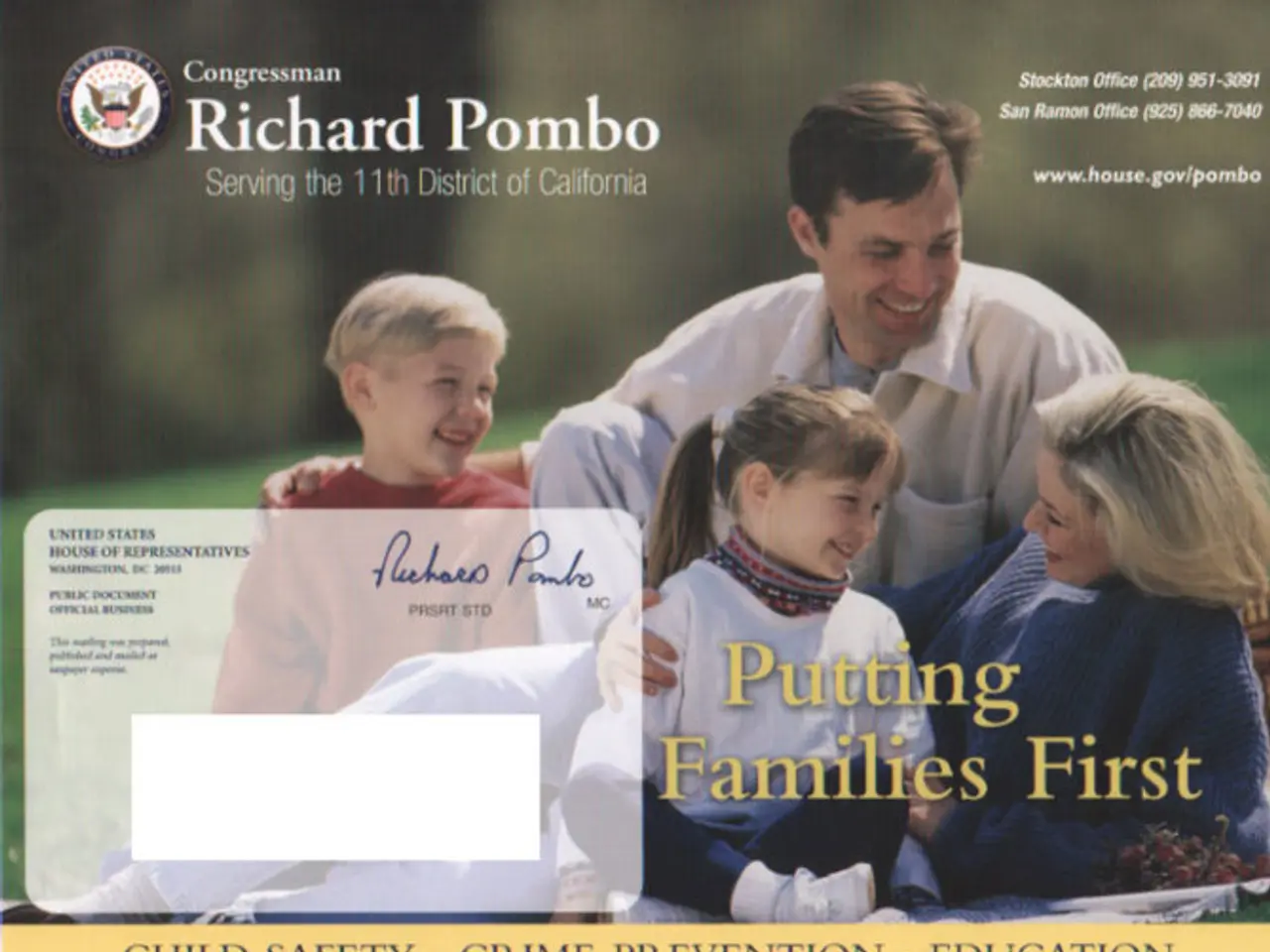Guide to Establishing a Prosperous Career as an Executive Through Portfolio Management
Lee Godown, a seasoned executive with a career spanning over four decades in public policy work, has transitioned into a new phase of his professional life. At the age of 60, he decided to make a change, inspired by the benefits of a portfolio career.
A portfolio career, as defined by experts, is a work model that involves holding multiple, simultaneous roles, projects, or income streams. This approach allows individuals to tailor their work opportunities to their skills, passions, and goals, rather than being confined to a single full-time job with one employer.
For C-Suite executives like Lee, transitioning from a traditional executive role into independent consulting, a portfolio career can offer several advantages:
- Diversified Income & Risk Reduction: A portfolio career spreads income across several clients or projects, reducing dependency on any single source. This can smooth out income fluctuations inherent in consulting and provide financial resilience.
- Leveraging Deep Expertise: Executives often have accumulated valuable, specialized knowledge and networks. A portfolio approach allows them to monetize this expertise in various ways, such as consulting for multiple companies, advisory board roles, public speaking, or writing for industry publications.
- Flexibility & Work-Life Balance: Portfolio careers offer the autonomy to set schedules and choose projects, enabling executives to prioritize personal interests, family, or other pursuits without sacrificing professional engagement.
- Enhanced Learning & Professional Growth: Engaging in different types of work accelerates skill development and keeps the executive intellectually engaged. New projects may stretch their abilities or require adapting existing skills to different contexts, fostering continuous professional growth.
- Personal Brand Reinvention: Moving into a portfolio career allows executives to reshape their professional identity beyond their former corporate title, building a reputation as a versatile, independent expert rather than being tied to a single organization.
- Opportunity to Give Back: Executives may find fulfillment in mentoring, teaching, or advisory roles that contribute to the next generation of leaders or the broader business community—opportunities that may have been limited in a traditional corporate role.
While portfolio careers offer many benefits, they also present challenges:
- Lack of Traditional Benefits: As an independent consultant, C-Suite executives must manage their own healthcare, retirement, and other benefits previously provided by their employer.
- Income Volatility: Earnings can fluctuate, requiring careful financial planning and possibly a runway of savings until the portfolio stabilizes.
- Burnout Risk: Juggling multiple clients and projects without strong boundaries can lead to overwork and burnout.
- Isolation: The lack of a traditional office environment may reduce casual networking and mentorship opportunities, although digital tools and coworking spaces can mitigate this.
Lee Godown's transition experience was life-changing and helped him make stronger decisions in his professional life. He approached LHH's International Center for Executive Options (ICEO), a career transition advisory practice designed for C-Suite executives. Working with ICEO, Lee began to assess his professional experience and aspirations.
After realising that a portfolio career could provide him with the best of all worlds, combining his network and skills as an independent consultant with personal time for family and interests, Lee Godown established Alpex International LLC, a boutique firm specializing in crisis management, business advocacy, and global government relations. Alpex International LLC allows him to focus on the creative parts of landing clients without worrying about administrative details.
With Alpex International LLC, Lee Godown can now spend more time with his family, pursue hobbies such as teaching at George Mason University and the University of Maryland, racing cars, gardening, playing the piano, and being on the boards of non-profits. His extensive experience, deep industry connections, and reputation continue to serve him well in this new chapter of his career.
References:
[1] “What is a Portfolio Career?” Portfolio Careers, www.portfoliocareers.com.
[2] “The Benefits and Challenges of a Portfolio Career.” LHH, 15 May 2020, www.lhh.com.
[3] Cohen, Reuben. “Lee Godown: A Portfolio Career Case Study.” LHH, 15 May 2020, www.lhh.com.
[4] “The New World of Work: Portfolio Careers.” Forbes, 28 June 2018, www.forbes.com.
[5] “The Portfolio Career: A Guide for the Modern Age.” The Balance Careers, 22 May 2020, www.thebalancecareers.com.
- Lee Godown's transition from a traditional executive role to a portfolio career allowed him to leverage his deep expertise in public policy work, monetizing his specialized knowledge through independent consulting, advisory board roles, public speaking, and writing for industry publications.
- Managing multiple clients and projects in a portfolio career can offer the autonomy to set schedules, prioritize personal interests, and achieve a better work-life balance, as demonstrated by Lee Godown's pursuit of hobbies and board memberships alongside his professional commitments.
- Aside from the benefits, a portfolio career also presents challenges such as income volatility, the need for careful financial planning, and potential burnout, so executives like Lee Godown seek resources like career transition advisory practices, such as LHH's International Center for Executive Options (ICEO), to make informed decisions and manage their transition effectively.




